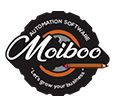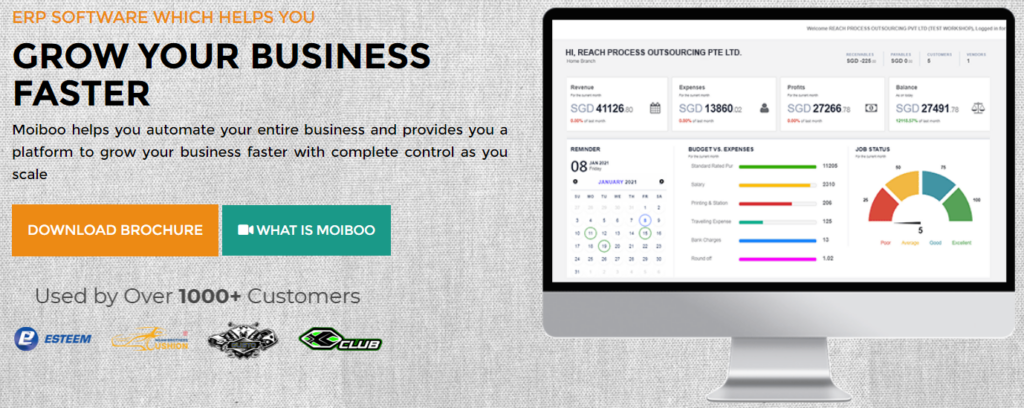Singapore, with a population of over 5.639 million, is characterized by 84% internet penetration. Almost 73% of the population uses the online medium and a smart device to shop online, using the digital medium for various other tasks and activities.
In the context of e-commerce, the projected revenues by 2025 are about Singapore Dollars 7 billion. Undoubtedly, the island country’s digital-savvy population is one of the most targeted customers by local and international online or e-commerce stores. With the e-commerce industry booming here, many players have entered the Singaporean virtual market.
Even though statistically speaking, the local sellers are doing better than international players; we present five leading online platforms that are doing exceedingly well in Singapore.

Table of Contents
1. How to sell online in Singapore?
1.1. Plan it all well
- Drop-shipping – Pros and Cons
- Partner with a manufacturer – Pros and Cons
- Identifying where to sell
2. Selling on an e-commerce marketplace
3. Setting up own e-store
4. Selling on both platforms
5. List of 5 online mediums that work superbly in Singapore
6. Conclusion
Let’s see how to sell online in Singapore:
How to Sell Online in Singapore?
Selling online has helped many brands become household names in the world today so it is mandatory to know how to sell online. Take the case of Amazon and eBay. There is hardly anyone that has ever heard of these names. In Singapore, too, online sales are skyrocketing at the moment.
Thanks to the amazing way the digital medium has evolved and grown in the last few years! In Singapore’s technology-savvy population, there is a huge potential for sellers to try the online medium and make their e-commerce ventures successful.
However, new sellers in Singapore need to target the right online platforms to leverage this amazing medium’s growth potential. It is vital to strategize and plan well so that your business reaches its true potential.
Plan it all well
Like any other business, you need to identify your business goals and objectives, set the target, and define the scope, mission, and vision. There needs to be a well-strategized plan of action. You need to study the market, research the competition and collect all kinds of data to enable you to take viable decisions.
While choosing the product line, you have to pay attention to facts and figures and see which products have good potential in the existing market.
Understanding the customers‘ minds and personas is crucial to offer them the right product. It would be best if you also carried out due diligence in understanding where to source your raw materials from and minutely detail the production process to address operating costs optimally.
If you do not plan to produce, you can choose alternate models of online selling.
Drop-shipping:
It is one of the most popular methods today of selling online. In this model, you buy products from an online or offline store and then promote them through your online store. In this case, a drop shipper is responsible for delivery, shipping, and handling of the returns.
Pros of Drop-shipping:
- Most of the operational work is handled by the drop-shipper, including deliveries and returns.
- There are no headaches related to warehousing or overstocking. There are no risks of loss of money due to over-production.
- It is an easy model to operate. It would help if you focused on promoting and marketing the products. Hence, the overhead costs are reasonably low.
Cons of Drop-shipping:
- The profit margins are considerably low.
- There is no control over the product quality, even if you are selling under your company name.
- You have zero control over the manufacturing process, operations, inventory and stock, shipping, and deliveries.
Source: https://magento.com/blog/drop-shipping
Partner with a Manufacturer:
in this case, you have the manufacturing unit produce customized products for your e-store and customers. You sell the product using your online store.
Pros of being a partner to a manufacturer:
- Your profit margins are higher than drop-shipping because the entire production process is specialized for your brand.
- You have a complete hold on the manufacturing process and branding of the product.
Cons of being a partner to a manufacturer:
- The investments are substantially higher as the products developed and produced are your assets.
- You will have to involve a lot of your time researching and planning the entire production. You need to design and develop and test the product.
Identifying Where to Sell
When you don’t have an idea of how to sell online, you have three options to choose from – one, sell on a leading e-commerce platform like Amazon. And, second, open your online store. Thirdly, you can sell on both platforms.
Selling on an E-Commerce marketplace
It is the easiest of all. You need to have a seller’s account, get the basic set-up done and start selling almost instantly. Registration and approval may take some time. You will have to furnish details like VAT papers, ID and address proof, and so on.
Setting up own E-store
You can use an open-end PHP platform to create your e-store. You can appoint a professional to design and develop a store and start to sell. You can choose a suitable package, usually on a recurring basis or an annual payment basis.
Selling on Both Platforms
You can also use both options method together and simultaneously to sell in Singapore.
Please note that all the above methods work lucratively well on the online medium in Singapore, at the moment, and are doing extremely well for most sellers in the business-to-consumer segment.
List of 5 Online Mediums that Work Superbly in Singapore
- Lazada
The platform is known as the Amazon of Southeast Asia. It pioneered the e-commerce revolution in Singapore. Opened in 2011, Alibaba is one of the owners of Lazada. The marketplace is a one-stop destination for all kinds of purchases. From garments to toys, groceries to sports equipment, household and kitchen appliances, electrical and electronic gadgets, and more. One of the reasons why the e-commerce platform is so popular is the 10% discount on subscriptions. The e-commerce site gets more than 10 million people every month, on average.
- Qoo10
Known famously as GMarket, Qoo10 is headquartered in Singapore. The platform offers lifestyle products, fashion, and food items. The characteristic feature of the marketplace is that it features Korean products and has about 1.6 billion from Singapore, Japan, China, Hong Kong, Indonesia, and Malaysia.
- Shopee
It is another leading e-commerce platform located in Singapore. It serves entire Southeast Asia. In 2015, Shopee was awarded one of the five disruptive e-commerce startups in Asia’s Technology sector. What sectors are doing good in this marketplace? Jewelry, accessories, food and beverages, computers, garments, books, and lifestyle products.
- Carousell
This platform is another B2C shopping platform in Singapore with about 5.4 million monthly visits. It is also a platform that sells second-hand items. It is headquartered in Singapore, and it services customers from surrounding regions, including Taiwan, Hong Kong, Malaysia, and the Philippines.
- Zalora
Opened in 2012, Zalora has become one of the leading e-commerce marketplaces in Singapore in less than a decade. It is known for featuring trendy brands like Calvin Klein, French Connection, Lavish Alice, Nike, Puma, Onitsuka Tiger, and more, attracting the millennial crowd. It is the place for all fashion and lifestyle-related purchases.
Conclusion
With the B2C online platform booming in this small island nation of Southeast Asia, this is the right time to grow your business in the online medium. If your business is new to the e-commerce platform or is a startup and doesn’t know how to sell online, it is best to get started with these marketplaces online and see your business grow.
If you are looking for PSG Grant pre-approved Automation software for your business we recommend you to try our moiboo automation business software to automate your entire business end-to-end., click here for the free demo or Please feel free to call for more details: +65 9895 1817
Note: The information mentioned above is subject to respective changes from time to time.
Faqs:
How to sell online?
There are many ways to sell items online, and the best approach depends on the type of item you’re selling, your target audience, and your overall business goals.
here are some general tips that can help you how to sell online successfully online Choose the right platform, Create a compelling product listing, Price your items competitively, Offer excellent customer service, Promote your products, Provide secure payment options, and Ship your products promptly.
Overall, selling items online requires careful planning, attention to detail, and a willingness to adapt to changing market conditions.
Is E-Commerce profitable?
E-commerce has the potential to be profitable for businesses that approach it strategically and invest in it properly. Success in e-commerce depends on various factors, including the type of products or services being sold, the pricing strategy, the level of competition, the marketing efforts, and the overall business strategy.
While e-commerce can be highly profitable, it requires an investment in infrastructure, technology, and marketing, as well as ongoing management and adaptation to changing market conditions. Ultimately, businesses need to carefully manage their expenses, invest in the right resources, and focus on customer acquisition, retention, and loyalty to ensure profitability.
Do I want to take a license to sell online in Singapore?
It is important to note that the licensing requirements in Singapore can be complex and may vary depending on the type of business you are running. Therefore, it is advisable to consult with a professional advisor or seek guidance from the relevant government agencies to ensure that you comply with all necessary regulations and requirements.FF

